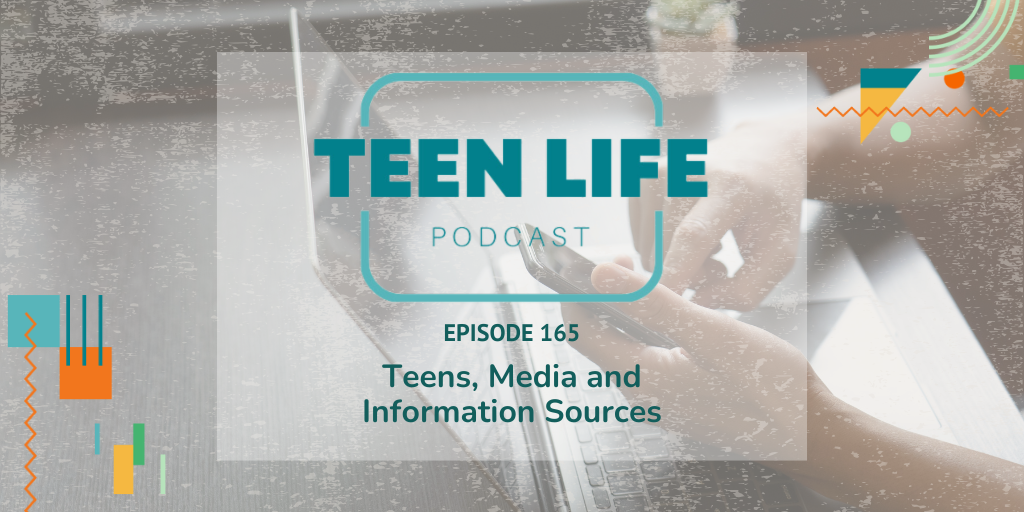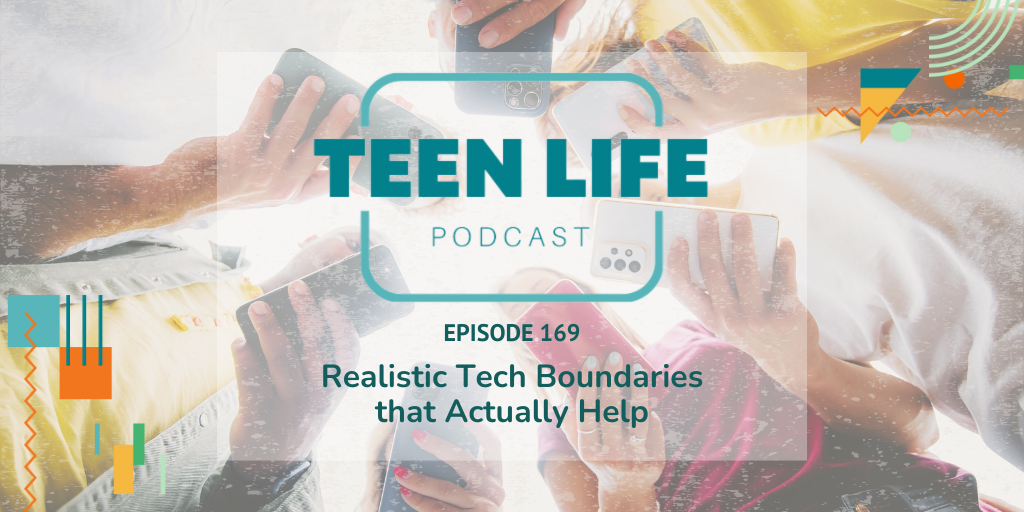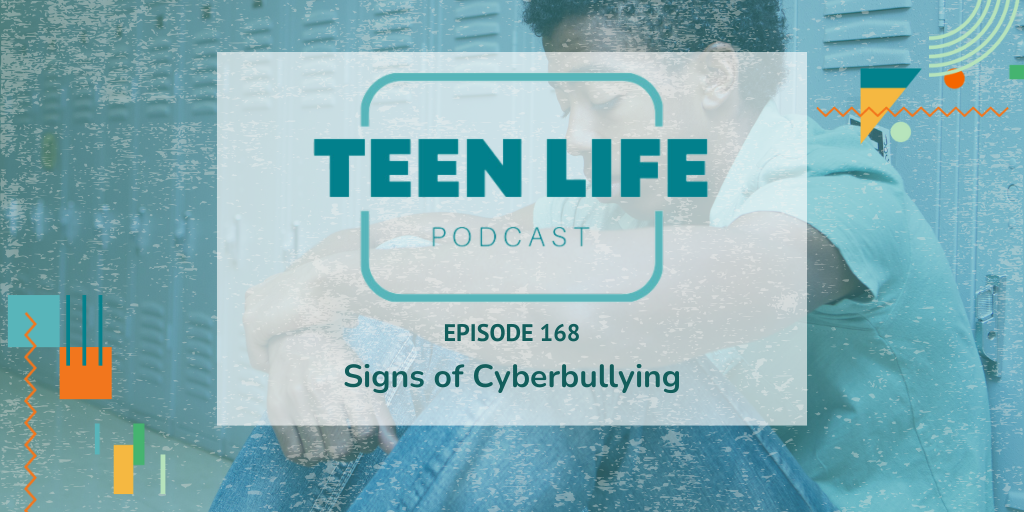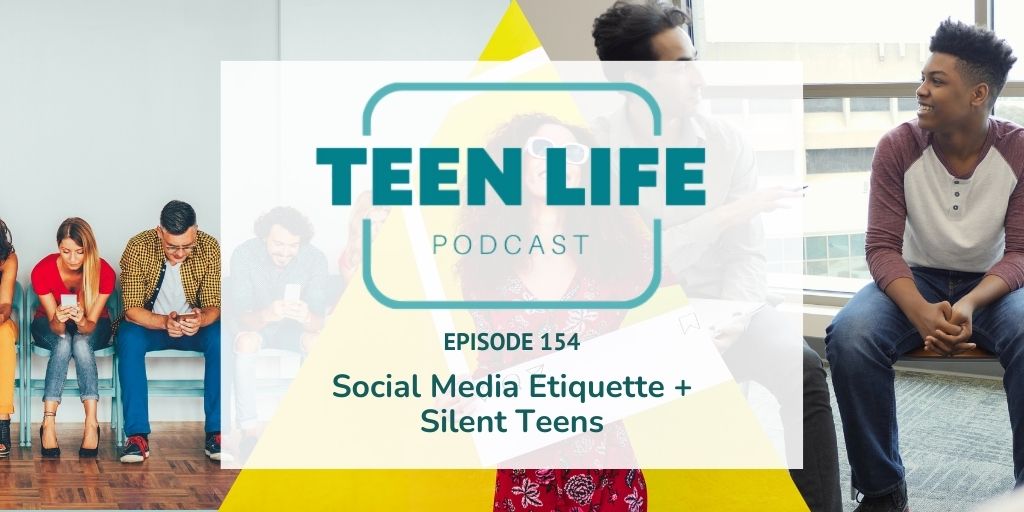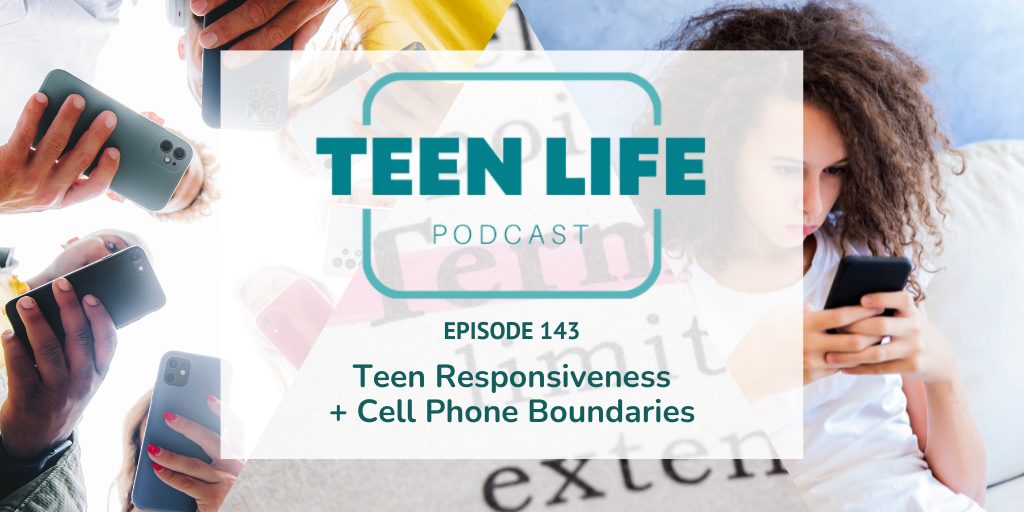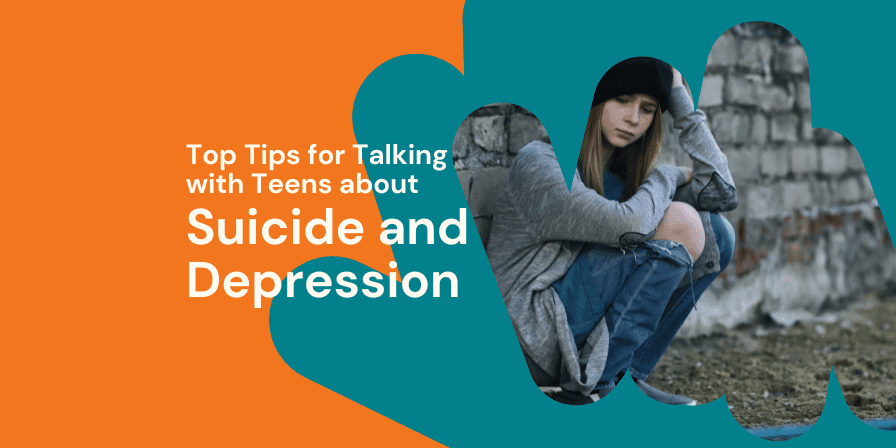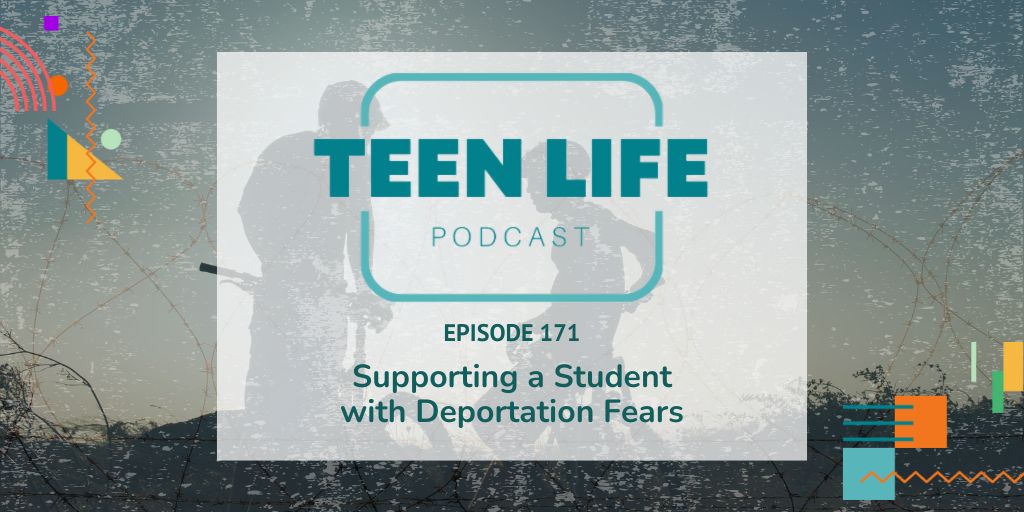
Supporting Students with Deportation Fears | Ep. 171
Podcast: Play in new window | Download
Key Question
“Recently, a student opened up to me about being afraid that their loved ones might be deported. I wasn’t sure how to respond in a way that makes them feel heard without making any false promises.”
How can I make students who are afraid of deportation feel safe without crossing any lines or bringing up things I shouldn’t?
How do we support students who are afraid of being deported?
Whether a student’s own status or that of a loved one, fear of deportation can deeply impact their sense of safety and well-being.
As caring adults, how can we respond in a way that makes students feel heard, valued, and supported—without making false promises or overstepping our role?
What We Cover
00:00 Navigating Student Fears of Deportation
02:56 Creating Safe Spaces for Teens
06:10 The Importance of Listening
09:24 Identifying Trusted Adults
12:36 Coping Strategies for Students
15:52 Empowering Students Through Support
How to Support Students
1. Start with Listening
- Listen without judgment or interruption.
- Sometimes, students just need to feel heard without someone jumping in to fix things.
- Example response: “Thank you for trusting me with that. That sounds really scary.”
2. Create a Safe, Non-Intrusive Space
- Reinforce that your group, classroom, or community space is a safe place.
- Students should never feel pressured to share personal information.
- Example response: “You don’t have to share anything you’re not comfortable with, but I’m here to support you however I can.”
3. Help Identify Trusted Adults & Safe Places
- Ask students who they feel safe talking to at home, school, or in the community.
- Example question: “Is there someone you trust that you can talk to about this outside of here?”
- If they don’t have someone, suggest school counselors or other trusted adults.
- Ask students where they feel safe. If school doesn’t feel safe, help them identify other safe spaces in their community.
4. Help Manage School Work During Stress
- Acknowledge that focusing on schoolwork can be difficult when dealing with fear and anxiety.
- Offer to help break tasks into smaller, manageable steps.
- Example response: “I know it can be tough to focus on school when you’ve got so much on your mind. Would it help if we figured out a plan to manage your assignments together?”
5. Focus on What You Can Do
- While you can’t change their circumstances, you can offer consistent support.
- Let them know they can always turn to you when they feel overwhelmed.
- Example response: “I may not have all the answers, but I’m here to listen anytime you need.”
Perspective Shift
If a student is worried about what’s happening at home, that fear will impact their ability to focus and thrive at school. We might want to keep school and home separate, but students need our full support to feel safe and valued.
TL Tips & Takeaways:
Stay Consistent & Be a Safe Person
Reassure them: “No matter what happens, you belong here. You’re always welcome in this space, and I’ll be here to support you however I can.”
Encourage Healthy Coping Strategies
Suggest activities like journaling, breathing exercises, or talking to a trusted friend.
Example question: “When things feel overwhelming, what usually helps you feel a little more in control? Let’s think of a few ways to help you feel calmer in those tough moments.”
Some Last Thoughts
Being a trusted adult can make a huge difference in a student’s life. Even if you don’t have solutions, your calm and consistent presence is powerful. Teens need to know they aren’t alone, especially when facing fears like deportation. Your support, listening ear, and safe space can be exactly what they need to keep going.
Have a question or a topic you’d love to hear about? Reach out on social media or email us at podcast@teenlife.ngo.
Read Episode Transcript
Karlie Duke (00:00)
Recently a student opened up to me about being afraid that their loved ones might be deported. I wasn’t sure how to respond in a way that makes them feel heard without making any false promises. How can I make them feel safe without crossing any lines or bringing up things I shouldn’t? There is a lot to this question. So let me start. I just want to give a couple of disclaimers before we get into this topic.
So if you’re listening and you’re like, no, what am I getting myself into? Or what is the Teen Life podcast getting themselves into? This episode is not intending to be political. As we know, deportation is not a new topic, but it feels just especially complicated. And it’s something that students are talking about a lot. We’re seeing it in groups, counselors are seeing it in schools.
Tobin (00:40)
.
Karlie Duke (00:50)
And so we’re not gonna talk about laws or policies today, but we just wanna offer some resources if a student brings something like this up so that you can respond in a way that’s supportive. So that you can respond in a way that is helpful and appropriate. And then finally, just as a reminder, we want to let the students lead this discussion. So especially if you’re leading a teen life group, if you’re one of our volunteer facilitators, we don’t ask students about documentation status or where their family is from or anything like that, like demographics like that. And so our goal is to give every student a seat at the table where they can feel safe or they can feel like they belong no matter what they look like, no matter what they’ve done, where they come from, what they believe that is just kind of what teen life does. And so with that being said, I do wanna give advice, like don’t give legal advice or just…
Tobin (01:18)
Mm-hmm.
Karlie Duke (01:45)
really dive too deeply into this topic, especially if you’re not licensed or trained to do so. So if you’re a volunteer stepping into a school campus, if you’re a parent who’s talking to a kid’s friend, like it’s okay to also give them resources outside of you, of someone who’s gonna know this better. And so we just wanna give that disclaimer out that we’re gonna talk about this because we want to discuss tough topics that students are going through. And so this is one of those right now that is…
Tobin (02:00)
Mm-hmm.
Caleb Hatchett (02:03)
Mm-hmm.
Karlie Duke (02:14)
It’s tough and we wanna be there for students and support them. as a, just a quick perspective shift before we really get into this, as always, no matter what the topic is, if a student is worried about what’s going on at home or what’s going on with friends outside of school, it’s going to affect them at school. And so you can’t keep school and home separate.
Caleb Hatchett (02:31)
Mm.
Karlie Duke (02:35)
If you’re a teacher, if you’re a counselor in a school setting, home is not separate because they’re bringing it with them. I think Tobin, you’ve said this and even wrote a blog about like almost like they’re bringing an extra backpack to school with them that they’re carrying stuff. And so teens need our full support to feel safe and valued at school.
Tobin (02:41)
Mm-hmm.
I think the biggest thing that we say about everything, including for our parents, is it’s your job in this situation is to be shockproof. There shouldn’t be anything in this world, this, where we’re at right now that you haven’t already heard about or aren’t seeing in the news. And when it hits in your own backyard, it’s just a reminder of, this is, this is happening everywhere. It doesn’t matter if you’re in Texas. It doesn’t matter if you’re in New York or California.
Karlie Duke (02:58)
Mm-hmm.
Caleb Hatchett (02:58)
Mm.
Mm.
Tobin (03:17)
Wherever you’re at, you’re probably seeing some of this and obviously in some states it’s a little bit higher intensity than others. But if a kid comes to you with this concern, just be shockproof and just listen to him. And it’s like that sounds so simple, but nine times out of 10 with any problem, the teens just want to be heard. And that helps kind of that helps them kind of deal with the anxiety of what they’re dealing with.
Caleb Hatchett (03:36)
Yeah.
Tobin (03:43)
And so that’s that’s always good advice, I think, for everything we do.
Karlie Duke (03:45)
.
Caleb Hatchett (03:46)
And yeah, similar, shock in the news shock in, and how it affects teens and just everyone is going to be a problem that has been around and will forever be around. so, you know,
Again, we don’t want to be political, but we also want to talk about real problems that are affecting real teens, especially in our area- and the things that we’re seeing- but also the things that we’re going to talk about. The advice that we’re going to give can apply beyond just this and can apply. How do we sit and be with students and things that are beyond their control and beyond our control? And so it’s good advice. And so like Tobin said, they, they want to be heard. And so one of the first things I’d say is you just start with listening. Like.
Karlie Duke (04:15)
Yeah.
Caleb Hatchett (04:30)
Don’t try to fix [anything]. And that’s a big one that we say like, Hey, you can’t, you can’t, especially with this, but just, just listen and be shockproof and just be like, yes. Thank you so much for, for sharing that, for trusting me, um, with that. And then don’t, that’s all you need to say. It’s like, there’s no, Hey, and do this. It’s a, thank you. Like, I’m sorry. Thank you for feeling free to share it.
Karlie Duke (04:51)
Mm-hmm.
Tobin (05:00)
Well, and Karlie kind of already hinted at this, but if you are in a position where you are a teen life facilitator in these groups, part of the agreement you sign when you lead these groups is that we don’t we’re not talking about. We’re not we’re not giving opinions on these things. We’re just there to hear them. And so but if you’re not in a team of group and you can technically give your opinion on things like, you know, one thing, especially as a guy that I’m always told it with my wife is that I’m not trying to I don’t want you to fix my problems. I just want you to hear my problems. And so
That kind of applies here as well. You know, if even if you have the answers on how to fix that stuff, like that’s that’s still something that can be very dangerous and can be litigated and possibly get you in hot water. like, you know, always refer or defer to just listening and then referring to experts and people that can actually deal with this on a day to day basis.
Caleb Hatchett (05:38)
Mm-hmm.
Karlie Duke (05:38)
Mm.
Right? I think as adults, it’s so easy to jump in and try to fix. Like, I just think that is our go-to thing. And so instead of fixing, just listen, just listen, as they’ve said. It is more powerful than you think to just have someone who will be there and give, like put your phone down, give them your full attention, and listen to them. Another…
Tobin (05:50)
Mm-hmm.
Caleb Hatchett (05:55)
Yeah.
Tobin (06:10)
Mm-hmm.
Well, in one way that you can fix it is just by creating a safe space for them. mean, the hard is this particular topic. The hardest thing about this is that people don’t feel safe and the people that are scared about this, they don’t feel safe anywhere, understandably because of what’s going on in the news and stuff. So it’s just in some cases like this is just your chance to reinforce that your group, your church, your classroom, wherever you’re at that.
Karlie Duke (06:19)
Mm-hmm.
Tobin (06:41)
This is a safe space for them and they are, they don’t need to share everything with you, but that you’re there to, you know, be with whatever they’re comfortable with sharing and then that you’re going to support them however you can. And again, the support doesn’t have to be this mass gesture. just has to be creating that space for them.
Caleb Hatchett (06:59)
Yeah. And even with that teaching them to find and identify trusted adults in other safe spaces, even if it’s not you, you know, making sure that they have, you know, these spaces and people that they can go to, to kind of vent, to be heard, to be safe enough to express those, feelings and doubts and fears, especially with everything that’s going on. Right. You never know if
Karlie Duke (06:59)
Yeah, I agree.
Caleb Hatchett (07:24)
for them, is this okay for me to share? Right? Or, or am I putting myself or anyone else that I love, like at risk by sharing? so helping them understand that your space is safe and then helping them identify other safe spaces, cause they can’t be with you or in your group all the time. And so kind of help equipping them also with that.
Karlie Duke (07:49)
Right, and so it’s finding safe people, it’s finding safe places if they don’t feel safe at school right now. Where is a place that you do feel safe? And let’s talk about that. And I think kind of having them come up with a plan. know schools have plans in place in case something happens to support students, to help them, to make sure that they’re not alone. And so just making sure that they though are thinking of those people, have them write it down. Like, hey, I want you to list out
Caleb Hatchett (07:55)
Mm-hmm.
Karlie Duke (08:18)
three trusted adults and if they’re like, I don’t have anyone that doesn’t necessarily have to be you, but it could be you. Or you could say, Hey, what about your school counselor? Can I go with you and let’s talk to him real quick or Hey, is there a teacher that you trust? Is there a local youth pastor that I can go connect you with that we’re just making connections and pointing them back to what they can do, who they can go to.
And like I said, making sure that they have at least some sort of plan in their mind and are kind of getting ahead of that if that is a real concern.
Tobin (08:53)
hard thing with this particular topic also is that the schools have not been safe in this situation, at least according to the news. We have people coming into the schools and checking documents and possibly removing students and stuff. so I think schools are becoming less and less, not safe, but the safety feel that you get from schools becoming less and less. My own high schooler worries about
shootings at schools and stuff. so it’s not just this particular situation, but like, whenever the school isn’t safe for people, like, and when they don’t feel like it’s safe, that’s really hard because like, I when I was a teacher, I used to tell my students all the time, like, hey, you better figure out a way to like people at school- because you spend most of your life here. Like you spend more, more hours in a day at school than you do with your own family. And so
Karlie Duke (09:23)
Mm.
Caleb Hatchett (09:42)
Mm-hmm.
Tobin (09:50)
The more things that happen in this world that make schools not feel safe, it just creates this sense of terror for everyone, but especially in this situation because they can’t even go to school now and not have that fear. And so that’s why it’s really important to help them find those connections and maybe think through like everything we do with Teen Life. Like they may be forgetting about some connections that they have or trusted adults or even safe places that they may have.
Caleb Hatchett (10:03)
Yeah.
Tobin (10:17)
And helping them find that will help them kind of manage their stress level when they are in a place that they don’t feel safe in.
Karlie Duke (10:23)
Mm-hmm. Well, I think part of that, I said earlier, when you don’t feel safe at home or even at school, and then we’re expecting them to carry on at the same level of schoolwork, they’re still juggling extracurriculars. They’re still expected to show up and do homework and sit for tests and all these things, but in the back of their mind, they’re like, but I’m worried about this too. And their brain isn’t able to fully connect at school. That’s hard.
Caleb Hatchett (10:45)
Yeah.
Karlie Duke (10:51)
And so we need to be able to acknowledge that, that it’s hard to focus on school when you’re dealing with fear, any kind of fear. It doesn’t matter. This isn’t unique to this topic. But I think if you are talking to a student and they’re really struggling with school or they’re really struggling with this, let’s think of some coping skills to help them with that. So maybe it’s breaking it into smaller, more manageable pieces. So if they are like,
Caleb Hatchett (11:00)
Mm-hmm.
Karlie Duke (11:17)
They’re stressed about this, but they have a big test coming up and they can’t even think about that test. Be like, okay, I just want you tonight to go home and make flashcards. You don’t even have to look at them. Just make flashcards for this test. The next day, hey, I want you to spend 10 minutes looking over those flashcards. The next day, I come up with like here are very manageable steps. If you’re a teacher and you’re seeing these things, think through what are ways that I can give them support that they need right now and just.
Caleb Hatchett (11:32)
Yeah.
Karlie Duke (11:44)
Be compassionate to that, that there’s stuff going on outside of school that students are bringing with them and they just might need, not that you have to like give them the answers, but they might need you to help break down here are some steps that you can take that are gonna make this easier.
Caleb Hatchett (11:46)
Yeah.
I think this case and like, again, like other hundred other scenarios, right? Where, where students are in a place where they’re so fearful or stressed, like they’re in fight or flight. What they need from you, like we said earlier is a calm, calm presence to be like, “Hey, like we’re here. It’s safe.” But then, yeah, just like putting myself in that, like just a, I’ve been in the craziness of the fear, of the anxiety, and just having someone to be like, okay, let’s let’s break it down. Like I just want you to focus on this one thing is so, so huge. And so it’s where we go back to like, you might not be able to fix the overarching problem, but here’s where you can come in as a leader and kind of help students process and kind of help them- not fix the problem, help cope with that problem better.
Karlie Duke (12:53)
And so I think something that we have to acknowledge as adults is you can’t fix it. Like you’re not going to be able to fix every problem. And we’ve said that a few times, but focus on what you can do. And so you probably can’t change their circumstances. You probably can’t fully take away their fear and even to say things like, it’s going to be fine.
is a little patronizing. It’s probably not the truth. You don’t know. And so offering that isn’t helpful. So if you’re trying to go into that fix-it mode of like, you’re going to be fine or just do this and don’t worry about it. You don’t know the full situation. And like I said, that’s, that’s probably not necessarily an easy fix. So, but what you can do is offer consistent support. You can show up, you can continue to come, you can check in and just be like, Hey, how are you doing today?
At Teen Life we use fists to five all the time in our groups. like, hey, fist to five, how are we feeling today? Where’s our stress level? How are you feeling with school? What’s home life like right now? And so doing that and then once again, just offering like, hey, I probably can’t fix it. I don’t have all the answers, but I’m here if you just need someone to talk to.
Tobin (13:46)
Mm-hmm.
Karlie Duke (14:04)
So kind of to wrap this episode, this subject up, I think we’re seeing this a lot more. We’re talking to schools who are saying, I’ve got students in my office a lot who might not even be worried about themselves. Maybe they’re worried about a friend. And so this is just something that many of our schools are dealing with. Many of our groups are dealing with.
Tobin (14:24)
Mm-hmm.
Karlie Duke (14:33)
And so kind of to wrap up what we’re talking about, I think the key thing is to stay a consistent presence, to be a safe person. And like I said, to help them connect to other safe people. So saying things like, hey, no matter what happens, you belong here. No matter what happens, I’m gonna still support you. You’re welcome here. I mean, these little things, especially for a student who maybe doesn’t feel welcome,
who doesn’t feel safe, who doesn’t feel like they are wanted can go a long way. And so being that person for them can, I don’t know, it can just make a difference. seems small, but it’s a big deal. And then finally, I think encourage some healthy coping strategies. So we kind of talked about some school stuff, but there are other things that we can encourage our students to do that doesn’t just help.
Tobin (15:13)
Mm-hmm.
Caleb Hatchett (15:13)
Mm-hmm.
Karlie Duke (15:27)
with school but can help with their stress level. So it could be things like journaling, deep breathing exercises, or even having them talk to a trusted friend of like, hey, we’re talking, but like, do you have someone else that you can just vent to and you feel like they’re a safe place and encourage them to do that. So one thing we like to do in teen life groups that I think could be helpful here is we’ll ask them, last time you went through something stressful or difficult, what helped you?
What did you do? What were the strengths that you had? What are the things that you did that helped you get out of that and be like, okay, how can we apply that to this situation? And remind them you’ve been strong in the past. You’ve done these things in the past and you can do it again. And I’m here to help you and you’re not alone in this. And so kind of asking them to reflect back as well.
Tobin (16:19)
Yeah, and the hard thing about all this stuff is that most of these kids didn’t choose this, and so just remembering that like what we say to them matters and how we talk to them matters and so just we keep saying it but just being there for them and whether it’s right or not like not having that being a time for opinions and just being there with them is an important so because again they didn’t choose to feel this way.
Caleb Hatchett (16:42)
Mm-hmm.
Tobin (16:46)
about any subject really, but just being not feeling safe in school is a hard thing to deal with. And so just being there and being and being opinionless and being shockproof is really important in these situations for sure.
Karlie Duke (16:51)
Mm-hmm.
Caleb Hatchett (16:58)
And I think I like to like helping walk with them and equip them with again, walking through and teaching them skills of, okay, like next time you’re in a situation where you feel overwhelmed, how can we use this? Right? Okay. I’ve been here.
Karlie Duke (17:13)
Mm-hmm.
Caleb Hatchett (17:16)
you know, whenever you feel like you’ve been keeping your head above water, it’s like, okay, no way. I know how to swim. so, you know, teaching them again, like, like Karlie said, some of those, those breathing exercises are ways that they can help self-regulate themselves. while also acknowledging like, Hey, you’re not a therapist, but like helping just equip them.
through your life experience while also being that trusted adult of saying, I am here. Like I am here for anything that you need, but also empowering them like you are capable though. It is just always, always going to go that.
Tobin (17:35)
Mm-hmm. That’s good.
Caleb Hatchett (17:51)
that extra mile, but there’s always so much value in being a trusted adult. It’s a thing that we say if you’ve listened to our previous podcasts a lot, cause it’s, it’s important and there’s value to it. but almost like any topic that gets brought up in a group or your office or classroom, even if you don’t have solutions, your calm, consistent presence makes all the difference. so teens need to know that they’re not alone. especially when facing fears like this, but.
We thank you guys so much for listening. Be sure to follow us on all of our social media whenever we release podcasts. But again, thank you so much.
Links & Resources:
- Dallas Observer: How North Texas School Districts Are Facing Immigration Changes
- Dallas ISD: Welcoming and Protective Schools
- Family Preparedness Plan
- U.S. Citizenship and Immigration Services
- Teen Life Blog: Second Backpack

Karlie Duke
Communications Director

Tobin Hodges
Program Director

Caleb Hatchett
Podcast Host
Karlie Duke | Director of Communications
Karlie has always had a heart for teenagers. Through her role at Teen Life, she loves to showcase the amazing stories coming out of Support Groups, but she is especially passionate about helping adults and teenagers find connection. Karlie has a BS in Communications with a minor in Family Studies from Abilene Christian University.
Caleb Hatchett | Podcast Co-Host
Caleb loves helping teenagers take ownership of their faith and relationships. He graduated from Abilene Christian University with a degree in Youth and Family Ministry and is currently Student Ministry Director at Jenks Church in Oklahoma.
Tobin Hodges | Program Director
Tobin’s entire career has been centered around students and teens from all walks of life. He has a passion for helping teens be their best selves. As Program Director, he loves working directly with school staff and students through Teen Life Support Groups. Tobin has a Bachelor’s Degree in Music from Texas Tech University.


